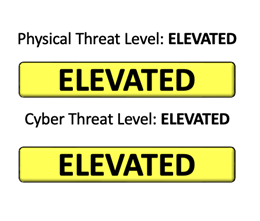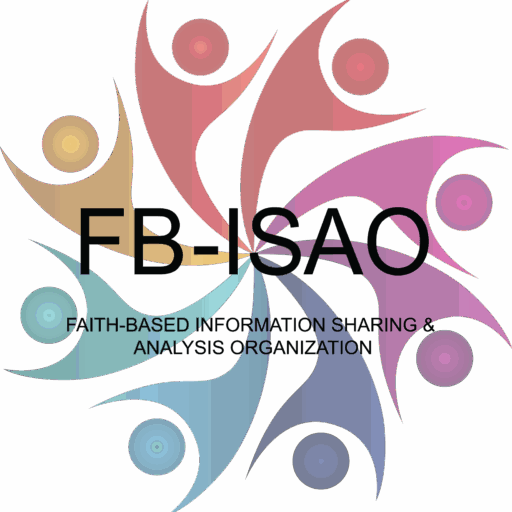Faith-Based Security Headlines
These updates are shared to help raise the situational awareness of Faith-Based organizations to best defend against and mitigate the impacts from all-hazards threats including physical security, cybersecurity, and natural disasters.
What Does “Globalize the Intifada” Mean and How Can it Lead to Targeting Jews with Violence?
“Globalize the Intifada” is a slogan adopted by some pro-Palestinian activists that invokes past violent uprisings namely the First Intifada (1987-1993) and Second (2000-2005) Intifadas and calls for worldwide participation in similar resistance against Israel. The Anti-Defamation League and the American Jewish Committee warn the chant functions as a call to violence and has contributed to real-world attacks on synagogues, Jewish individuals, and institutions in public protest and even online “doxing” campaigns.
In parallel, more than 400 Jewish leaders recently converted on Capitol Hill to demand decisive legislative actions, urging Congress to pass measures such as the Antisemitism Awareness Act, increase funding for the Nonprofit Security Grant Program, bolster FBI and local law enforcement resources, and hold tech platforms accountable for amplifying antisemitic content.
Analyst Comments: These two articles underscore a rising convergence between extremist rhetoric and real-world security threats to Jewish communities. The “Globalize the Intifada” slogan is not merely a political statement but in practice can inspire violence against Jews globally, increasing the threat landscape around protest, campus activism, and online targeting. Simultaneously, the push by 400 Jewish leaders for stronger Congressional action reflects how communities are seeking systemic protections, including nonprofit security grants and accountability from tech platforms. For faith-based and community security stakeholders, these developments highlight the need to monitor local protests for escalation risks, strengthen relationships with law enforcement, and support efforts to clarify the line between protected speech and direct calls to violence.
As ongoing conflicts in the Middle East continue to elevate the threat environment, the Department of State’s Overseas Security Advisory Council (OSAC) will host a Snap Call featuring a panel of Regional Security Officers (RSOs) from across the region on Tuesday, July 1 at 9:30 AM EDT. Register HERE to join.
The Evolution of Social Engineering
Corvus Insurance’s blog “Social Engineering Outgrows the Inbox” highlights how, in today’s cyber-threat landscape, attackers no longer rely solely on email but use a wide spectrum of social engineering methods targeting both individuals and systems to trick victims into divulging credentials or transferring funds. The frequency and cost of these attacks have surged; Barracuda reports organizations face an average of 700 attempts per year, and Ponemon noted average annual losses rose from $3.8M in 2015 to $14.8M by 2021. Corvus stresses that beyond technical defenses, robust employee training and phishing-resistant multi-factor authentication are vital.
Analyst Comments: Social engineering is now a multi-channel threat, extending beyond email to text, calls, and collaboration tools, making it harder to detect and prevent. The rise in financial losses shows why phishing-resistant MFA, employee training, and strict payment verification are essential. Organizations should also review cyber insurance to ensure coverage for BEC and invoice fraud, as attacks increasingly use social engineering for deeper compromises and direct financial thef.
Get the Daily Awareness Post Delivered to your Email!
More Faith-Based Stories
Suspect arrested after mass shooting threat that closed San Antonio JCC
Man tried to break into Nashville church daycare, police say
Police tracking potential suspects in Rogersville church robbery
‘Nothing seemed right.’ Man who hit church gunman with truck speaks exclusively with 7 News Detroit
Mother says religious, cult-like group could be at center of sudden disappearance of 2 Idaho teens
Jewish groups hold ‘emergency’ security sessions on Capitol Hill
Jewish Teen Threatened at Knifepoint in France as Antisemitic Violence Surges
Exclusive: Details emerge of secret diplomatic efforts to restart Iran talks
Iranian foreign minister admits serious damage to nuclear sites
What senators are saying after being briefed on the US strikes on Iran
Iran’s hackers keep a low profile after Israeli and US strikes
Iran’s Cyber Threat Persists as Ceasefire Holds
Man pleads guilty to hacking networks to pitch security services
US solar sets new records as renewables nearly match natural gas – EIA
Climate Change: Incoming Sunlight
More Security-focused Content






